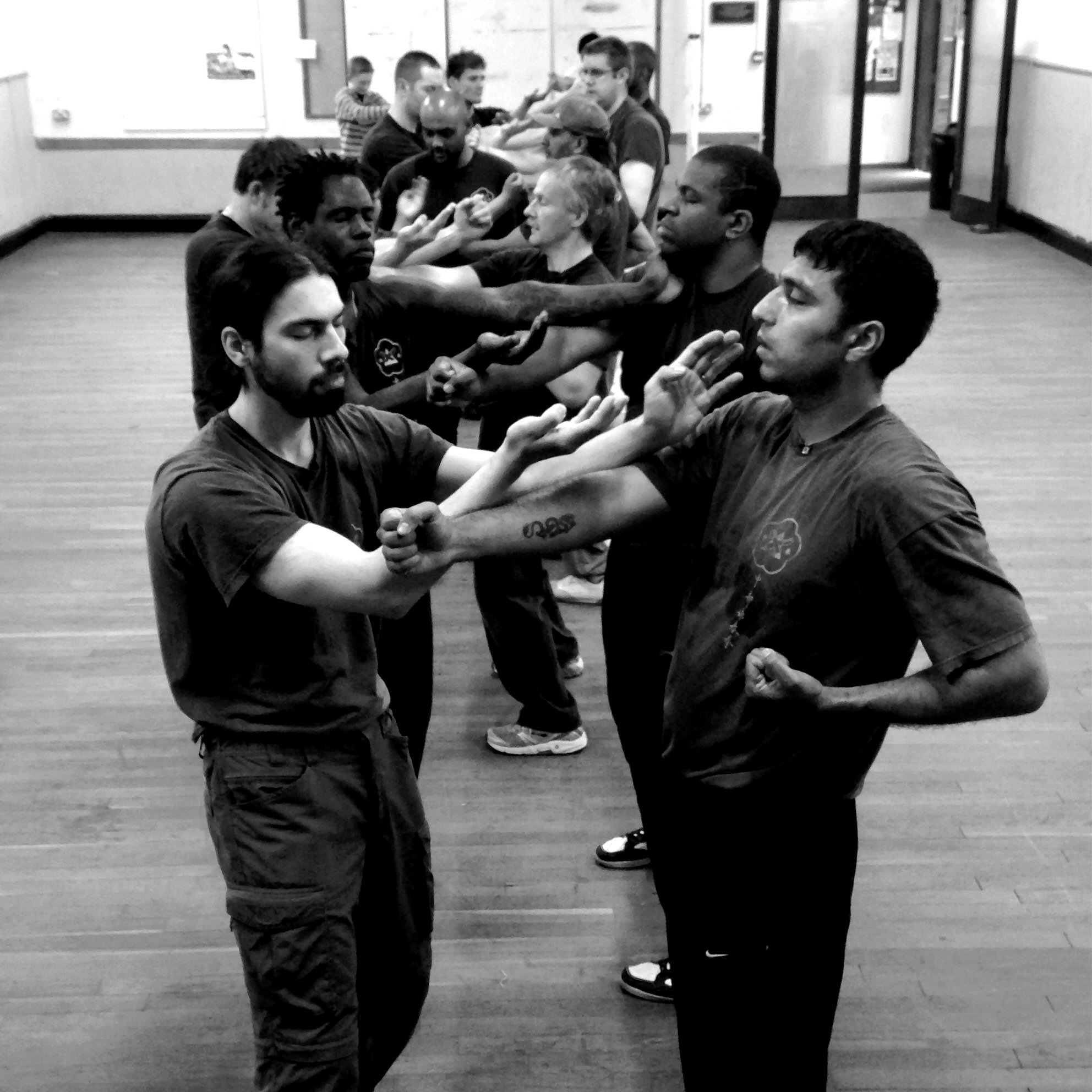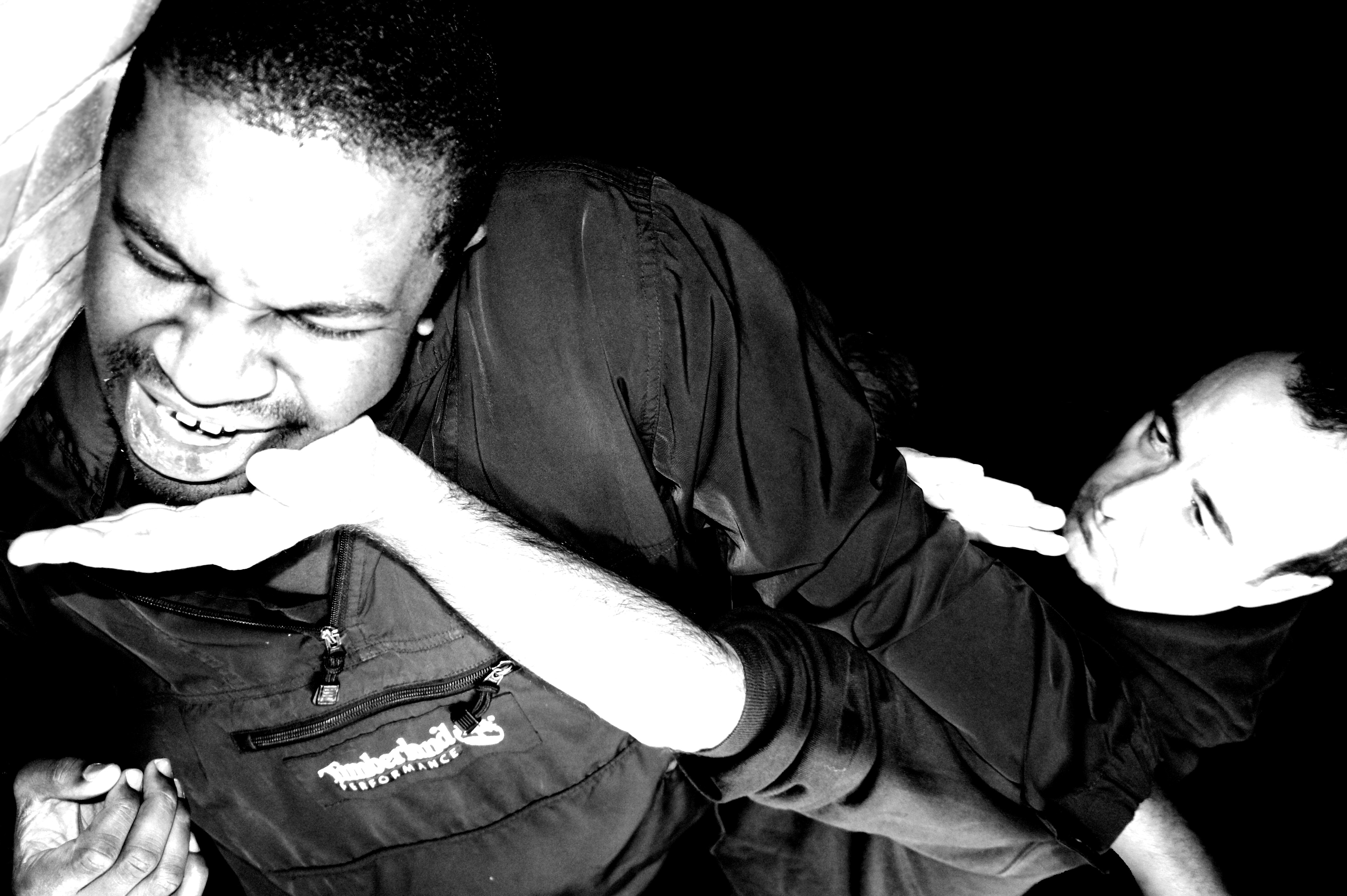|
|
What is Wing Chun
Kuen?
Beginning
training at the MWCK
All newcomers are welcomed into a non-members group for a
compulsory 16 lesson introductory course; during this introductory course
students are taught the basics of Wing Chun, whilst encouraged to watch the
main class train. There is no uniform or formal training clothing required at
this stage; training or jogging trousers, a plain t-shirt/sweatshirt and
training shoes are all that is necessary.
Lessons are
paid for in blocks of 4 lessons (£30.00) and member to member insurance
is provided to cover the 16 lessons.

The 16 lesson introductory period allows potential students learn
the basic Wing Chun skills, whilst observing typical classes and giving ample
opportunity to ask questions about all and any aspects of the Wing Chun system.
At the end of the introductory course non members can decide
whether they wish to apply to join the Association and continue their studies;
should they wish to apply to join they must complete an acceptance assessment
covering the basics they have been taught.
During that same 16 lesson introductory period however, each
potential student is the subject of a psychological and physical assessment by
the Sifu (teacher) and his instructors, who listen to the non-members
questions, review their attendances and punctuality, note their respect (or
lack of it) and assess their attitude and suitability to training within the
Midlands Wing Chun Kuen.
At the end of the introductory course the Sifu will decide whether
to invite and accept the applicant as a member, student and ambassador to the
school and Association.
"We teach by
selection and invitation only, we offer authentic Hong Kong Wing Chun taught in
the traditional manner. We set and expect the highest standards, teaching only
respectful, disciplined and dedicated martial artists, who train hard with the
correct mental attitude"
Sifu Shaun Rawcliffe
Members
training
|
|
|
|
|
A
typical members training session lasts for two hours and can sometimes cover
all the four elements of the Wing Chun System:- |
Forms: |
|

The solo repetitive practice and
performance of preset fixed sequence of movements that teach and refine
specific concepts, principles and techniques. There are no direct applications
of the movements of the forms but they do allow the practitioner to strive for
perfect positioning, and the closer the positions when practicing solo, the
better they will be when applying them on an opponent. |
Application drills: |
|

The
constant repetition of individual techniques or sequences, either solo or
preferably with a training partner, will build up confidence and understanding
of the position, structure and energy usage of each technique.
"There is no substitute for mileage" |
Fighting
Application: |
|

Unlike
most martial arts, in traditional Wing Chun there is no sparring (this is
because sparring involves two martial artists possibly of the same style trying
to out guess and out manoeuvre each other under a semi-controlled, rule
governed environment, which does not happen in the street). In Wing Chun we
practice 'one attack-one defend' training. This is when one partner will attack
using any street-practical techniques, whilst the other employs his Wing Chun
to dissolve that attack whilst simultaneously counter attacking. Fighting
application teaches you to apply the techniques you have positionally refined
in the forms and structurally developed through drilling.
Fighting application teaches you the
first and second stages of self defence:
The
1st stage, achieved through lots of practice, is to recognize the form and
direction of the attack
The
2nd stage is to safely bridge the gap and make contact defensively whilst
simultaneously counter attacking.
|
Chi
Sao: |
|

Wing
Chun's Chi Sao (Sticking hands) is a unique interactive training method that
develops structural awareness, correct energy utilization, distance judgement
and sensitivity so that you can learn to feel what is happening, assess the
situation and react accordingly. It develops close range distance coordination,
mobility, balance, timing, accuracy and the correct use of energy. Chi Sao is
often likened to a game of chess in that it is about strategy, skill and the
ability to assess and constantly reassess the on going situation, only in Chi
Sao you monitor the proceedings through arm contact.
Chi Sao teaches the 3rd and 4th stages
of self defence:
The
3rd stage being to trap or control their opponents hands, maintaining contact
and fighting range
The
4th stage is to remain in control of the situation until you decide it is safe
to change range and disengage contact. |
|
| |
|
|
"Midlands Wing Chun
Kuen" is the trading name of Midlands Wing Chun Kuen Ltd, Reg No. 07162974
"Midlands Wing Chun
Kuen Ltd" Copyright, Designs and Patents Act 1988 (c. 48), All rights
reserved |
|

|

